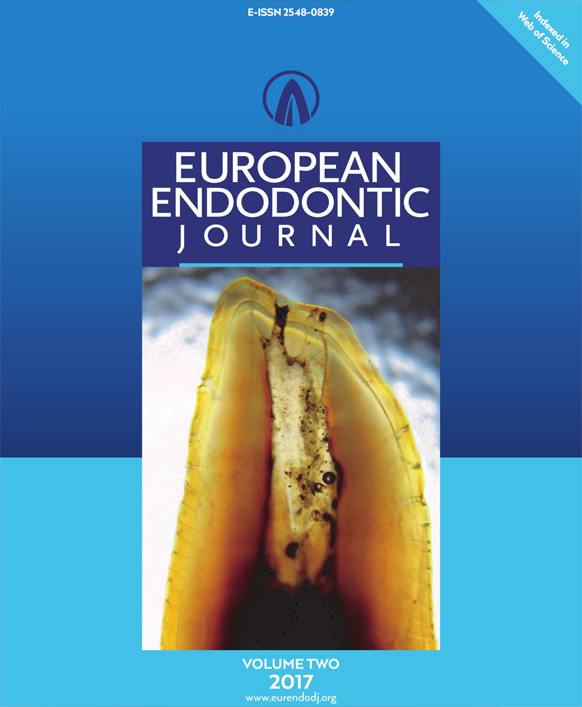
European Endodontic Journal
Yazarlar: Assil A. Russell, Nicholas P. Chandler, Lara T. Friedlande
Konular:-
DOI:10.14744/eej.2018.47965
Anahtar Kelimeler: Apical cracks,Vertical root fracture,Root-end resection,Surgery
Özet: To investigate apical cracks in roots that exhibit the butterfly effect and that have undergone apical resection and ultrasonic root-end cavity preparation. The effect of the obturation material was also studied. Methods: Forty extracted single-rooted teeth were decoronated at the cemento-enamel junction. Roots were viewed under a light microscope and coded according to the presence or absence of the butterfly effect. Canals were prepared using ProTaper Next instruments to size X3 and assigned to two obturation groups (gutta-percha and AH Plus, and ProRoot MTA alone). Each contained twenty roots (10 with the butterfly effect and 10 without the butterfly effect). Roots were resected perpendicular to their long axis, 3 mm from the apex, and cavities were cut using ultrasonic retrotips. Resin replicas were used for crack imaging from scanning electron micrographs. Statistical analyses were performed using Stata 13.1 (StataCorp, College Station, TX, USA). Results: Cracks occurred more frequently in teeth with the butterfly effect (80%), with this difference being significant (P=0.001). Most cracks (73%) ran buccolingually. Teeth obturated with MTA developed fewer cracks compared to those obturated with GP and sealer. Conclusion: Root-ends with the butterfly effect had a significantly higher number of buccolingual cracks following resection and ultrasonic root-end preparation. This might explain the development of some vertical root fractures, which usually run buccolingually. Canal obturation with MTA may be protective.